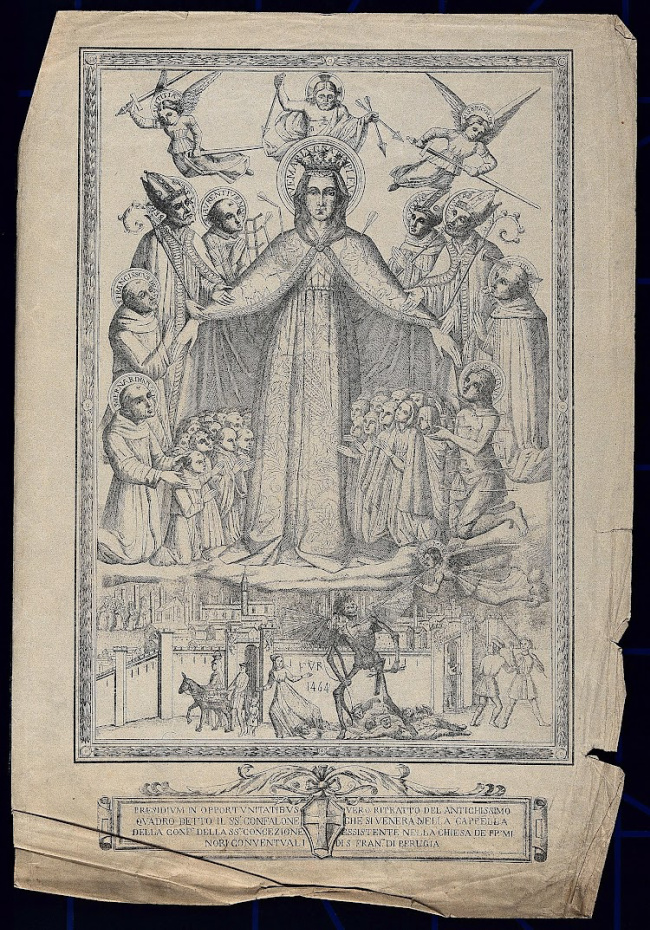Iowa Farm Boy - June, 1947
I. That which man primarily and immediately merits by good works is the increase of sanctifying grace, advance in holiness and favour with God here, and hereafter a corresponding augmentation of glory. While the progress of man in other departments of life is limited by the weakness of his faculties or by external obstacles, in the matter of sanctification he is perfectible to an indefinite extent. As long as life endures, a soul can go on working, praying, suffering, practising divine love, conformity of the will to God's benevolence, faith, humility, in an ever-advancing measure; and as the spiritual standing is raised by each degree of grace, so does every action become more super-naturally valuable. The bounty of God is never exhausted, and He continues to render a thousand-fold, by a new influx of supernatural vitality, for every effort we make in His service. By all this our future deserts are multiplied, our capacity for knowledge, love, and joy in heaven is enlarged, we shall be raised higher in glory, and shall drink more deeply of the torrents of delight. Every day of your life you may advance more and more in sanctification, and lay up to yourself treasures incomprehensibly great, which thieves cannot steal, nor rust and moth eat away. Reflect on the value of holiness and the facilities God has given you for acquiring it. Hunger and thirst after this justice and you will have your fill.
II. Consider how Holy Scripture confirms this doctrine. The aspiration of the just man is set forth: "Blessed is the man whose help is from Thee: in his heart he hath disposed to ascend by steps, in the vale of tears. . . . The lawgiver shall give a blessing, they shall go from virtue to virtue" (Ps. Ixxxiii. 6-8). The advance of the just man depends, after God, on his own efforts: we are bidden to "grow in grace and in the knowledge of Our Lord and Saviour, Jesus Christ" (2 Pet. iii. 18). And again: "He that is just, let him be justified still; and he that is holy, let him be sanctified still" (Apoc. xxii. 11). The result is that "the path of the just, like a shining light, goeth forwards and increaseth even unto perfect day" (Prov. iv. 18). The great advantage of long life is that you are able to carry on further this blessed work. There is always something to live for, even when the interests and pleasures of life have passed from us to younger hands. Here too is the great advantage of those who were called by God in childhood and have remained always faithful. They amass merits which those who come at the eleventh hour can only rival by extraordinary fervour, and struggles, and sufferings. The greater difficulties of later comers are happy opportunities of making up for lost years, and being made perfect in a short space fulfilling a long time (Wisd. iv. 13).
III. The advancement of holy souls, however great, does not amount, during this life, to confirmation in grace, and to freedom from the peril of sin and eternal loss. The passions remain vivid, and concupiscence ever tends to draw away even the saints into the way of perdition. The great Apostle with all his labours and his favours from God says: "Not as though I had already attained, or were already perfect; but I follow after, if by any means I may apprehend . . . . I do not count myself to have apprehended" (Phil. iii. 12, 13). He speaks of his imminent danger, and prays to be saved from it: "I see another law in my members fighting against the law of my mind, and captivating me in the law of sin. . . . Unhappy man that I am! Who will deliver me from the body of this death?" (Rom. vii. 23, 24). So he always lived in fear lest, after preaching to others-, he himself should become a castaway (1 Cor. ix. 27), One of your greatest dangers is to forget the dangers and allow yourself to be lulled in security, on the strength of past fidelity, and in reliance on your own merits. Consider yourself always as a beginner, as uncertain of the future, as possibly a reprobate.















